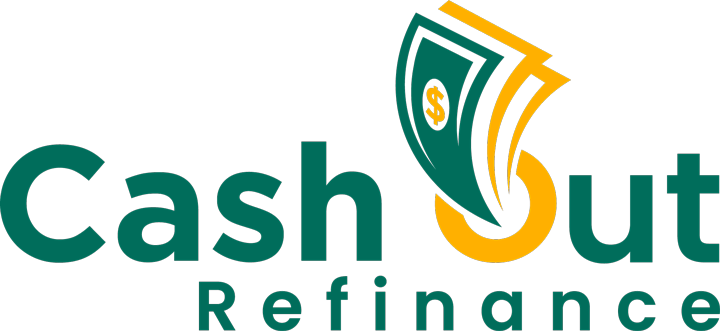For veterans, active-duty service members, and eligible surviving spouses, a VA cash-out refinance provides a unique opportunity to tap into the equity of your home. This program, backed by the U.S. Department of Veterans Affairs (VA), allows you to refinance your existing mortgage and take out cash based on your home’s value. Whether you’re looking to consolidate debt, pay for home improvements, or cover other major expenses, a VA cash-out refinance can provide the funds you need with several key benefits, such as no private mortgage insurance (PMI) and access to up to 100% of your home’s value. VA cash-out refinance eligibility is key.
In this step-by-step guide, we’ll explain how veterans, service members, and spouses can qualify for a VA cash-out refinance. From eligibility requirements to the necessary documents, we’ll walk you through everything you need to know to successfully apply for this refinancing option.
How VA Cash-Out Refinancing Can Help Veterans

1. Basic Eligibility Requirements for a VA Cash-Out Refinance
To qualify for a VA cash-out refinance, you must meet certain eligibility criteria set by the Department of Veterans Affairs. These criteria are designed to ensure that the program benefits veterans and service members who have served their country.
Here’s what you’ll need to qualify:
a. Military Service Eligibility
The first and most important requirement for a VA cash-out refinance is that you must meet the military service eligibility criteria. This means you must be one of the following:
- Veteran: Veterans who have served on active duty and received an honorable discharge are eligible for a VA loan. The specific length of service required depends on when you served.
- Active-duty service member: If you are currently serving in the military, you are also eligible for VA loans, including a VA cash-out refinance.
- Eligible surviving spouse: The spouse of a veteran who died in service or as a result of a service-related disability may also be eligible for a VA cash-out refinance. However, the surviving spouse must not have remarried.
b. VA Certificate of Eligibility (COE)
To apply for a VA cash-out refinance, you’ll need to obtain a Certificate of Eligibility (COE) from the VA. This document verifies that you meet the service requirements for VA loans and confirms your eligibility for the program.
You can obtain your COE in three ways:
- Online through the VA’s eBenefits portal: This is the quickest way to get your COE, as you can download it immediately after approval.
- Through your lender: Many VA-approved lenders can help you obtain your COE during the loan application process.
- By mail: You can complete VA Form 26-1880 and mail it to the VA. This process takes longer but is an option if you prefer traditional methods.
2. Credit Score Requirements for a VA Cash-Out Refinance
Unlike conventional loans, VA loans do not have a minimum credit score requirement set by the VA itself. However, lenders typically have their own minimum credit score requirements, which can vary. Most lenders require a credit score of at least 620 for a VA cash-out refinance. If your credit score is lower than this, you may still qualify, but you’ll need to work with a lender who offers flexibility.
How Credit Scores Impact Loan Terms
Your credit score will also affect the interest rate and terms you receive. Veterans with higher credit scores are more likely to secure lower interest rates, which can reduce the overall cost of the loan. Even a small difference in interest rates can save you thousands of dollars over the life of the loan.
Improving Your Credit Score Before Applying
If your credit score is lower than 620 or you want to improve your chances of securing favorable loan terms, consider taking the following steps:
- Pay off outstanding debt: Reducing your credit card balances and paying off loans can lower your debt-to-income ratio (DTI) and improve your credit score.
- Check your credit report for errors: Regularly reviewing your credit report can help you spot errors or inaccuracies that could be affecting your score. Dispute any errors with the credit bureaus to correct them.
- Avoid new credit inquiries: Applying for new credit cards or loans in the months leading up to your refinance can temporarily lower your credit score.
3. Loan-to-Value Ratio (LTV) Requirements
One of the standout features of a VA cash-out refinance is that it allows you to refinance up to 100% of your home’s appraised value. This is a significant advantage over conventional loans, which typically limit the loan-to-value (LTV) ratio to 80-85%.
How LTV Affects Your Loan Amount
The LTV ratio is the percentage of your home’s value that you can borrow. With a VA cash-out refinance, you can borrow up to the full appraised value of your home. For example, if your home is appraised at $350,000, you could refinance up to $350,000. After paying off your existing mortgage, the remaining balance is given to you as cash.
If you owe $200,000 on your current mortgage, this means you could potentially receive $150,000 in cash, minus any closing costs or fees.
4. Debt-to-Income Ratio (DTI) Requirements
Your debt-to-income ratio (DTI) is another important factor that lenders consider when determining your eligibility for a VA cash-out refinance. The DTI ratio compares your monthly debt payments to your gross monthly income. Lenders use this figure to assess your ability to manage additional mortgage payments after the refinance.
Maximum DTI for a VA Cash-Out Refinance
While the VA doesn’t set a maximum DTI ratio, most lenders prefer a DTI ratio of 43% or lower. However, some lenders may allow a higher DTI if you have other compensating factors, such as a higher credit score or substantial assets.
To calculate your DTI, divide your total monthly debt payments by your gross monthly income. For example, if you pay $3,000 per month in debt (including your mortgage) and your gross income is $7,000, your DTI ratio is 43%, which is generally acceptable for most lenders.
Reducing Your DTI
If your DTI is too high, you can lower it by:
- Paying down debt: Focus on paying off high-interest loans or credit cards to reduce your monthly payments.
- Increasing your income: If possible, take on a side job or negotiate a raise to increase your monthly income, which will improve your DTI ratio.
5. Income Verification
Lenders will also require proof of income to ensure that you can afford the new mortgage payments after the refinance. This process is known as income verification, and you’ll need to provide several documents to confirm your financial stability.
Required Documents for Income Verification
To qualify for a VA cash-out refinance, be prepared to submit the following documents:
- Recent pay stubs: Provide pay stubs from the last 30 days to verify your current income.
- W-2 forms: Lenders will typically request W-2 forms from the last two years to assess your employment history and income stability.
- Tax returns: If you are self-employed or have additional sources of income, you’ll need to provide tax returns from the last two years.
- Bank statements: Lenders may also request recent bank statements to verify your assets and ensure you have sufficient reserves to cover the new mortgage payments.
6. Property Appraisal
A property appraisal is required for all VA cash-out refinances. The appraisal determines the current market value of your home, which is essential for calculating the loan-to-value (LTV) ratio and determining how much equity you can access.
The VA requires appraisals to be conducted by a licensed, independent appraiser who is approved by the VA. The appraiser will evaluate your home’s condition, size, location, and comparable sales in the area to determine its value.
7. VA Funding Fee
While VA loans don’t require PMI, there is a VA funding fee that helps cover the cost of the VA loan program. The funding fee for a VA cash-out refinance is typically 2.3% of the loan amount for first-time users. For veterans who have used a VA loan before, the funding fee increases to 3.6%.
The good news is that the funding fee can be rolled into the loan amount, so you don’t have to pay it out of pocket at closing. Additionally, veterans with service-related disabilities may be exempt from the funding fee, which reduces the overall cost of the loan.
Final Thoughts
Qualifying for a VA cash-out refinance is a relatively straightforward process, especially compared to conventional loans. With more flexible eligibility requirements, no PMI, and the ability to access up to 100% of your home’s value, the VA cash-out refinance is one of the best options for veterans and service members looking to leverage their home’s equity.
To qualify, you’ll need to meet the VA’s service requirements, provide proof of income, and ensure your credit score and DTI ratio are within acceptable ranges. Be sure to gather all necessary documents, including your Certificate of Eligibility (COE) and income verification, to ensure a smooth application process. By consulting with a mortgage professional, you can explore your options and determine whether a VA cash-out refinance is right for you.

